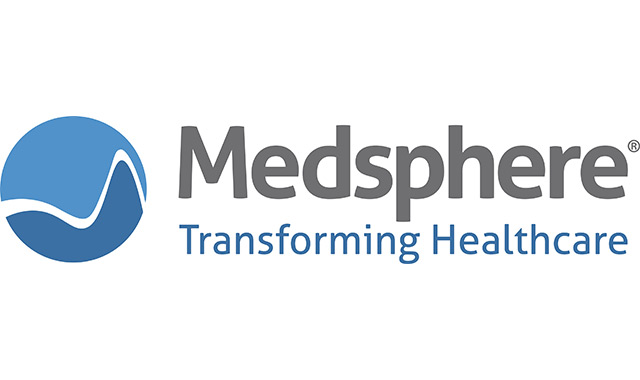Remember that the two things you don’t want to watch being made are sausage and law. Then recall that while the process for both may be unappealing and seem incongruous, the product is not always so.
Take the 21st Century Cures Act, for example, which is a lengthy (996 pages) piece of legislation (summary here) that focuses primarily on health-related scientific research and medical devices. It also broadly outlines the terms for an upcoming drawdown of America’s strategic petroleum reserve, which may look like a rider but is actually a way to pay for the bill.
The sale of crude will also help fund mental health and addiction treatment, about which the Cures Act has something to say thanks to language appropriated from the Helping Families in Mental Health Crisis Reform Act. That bill passed the House earlier this year but has languished in the Senate since.
It’s encouraging to see Congress address mental illness and addiction, and the Cures Act works to address many of the issues that plague American mental health care and bleed into acute care as well.
Read on for more on what the Cures Act does and doesn’t do to improve mental health care.
What does the Cures Act do for mental health care?
- Provide More Money: Over two years, the Cures Act provides $1 billion in block grants to the states for opioid abuse prevention and treatment through prescription drug monitoring, prevention programs and healthcare worker training. It also provides or reauthorizes a host of other targeted grants focused on specific goals and populations, including treatment of students on college campuses.
- Create New Leadership and Planning: The bill establishes a new assistant secretary for mental health and substance use to head the Substance Abuse and Mental Health Services Administration (SAMHSA), as well as a chief medical officer within SAMHSA to help with program creation and development.
- Promote Cutting Edge Research: Moving forward, a new National Mental Health and Substance Use Policy Laboratory (NMHSUPL … whew!) would be responsible for focusing evidence-based, scientifically oriented treatment on mental illness and addiction. The laboratory would also identify and respond to regionally specific mental health and addiction challenges.
- Push Parity: The Cures Act puts the onus for verification of compliance with parity legislation—the requirement that insurance policies cover mental and physical health equally—on Health and Human Services (HHS), Labor and Treasury. Down the road, the Government Accounting Office and CMS will evaluate whether or not parity compliance is happening.
- Support Mental Health Training in the Legal System: Approved use of existing funds would empower law enforcement to create mental health crisis intervention teams and pay for targeted training. Additionally, the Cures Act requires the attorney general and courts to create a drug and mental health court pilot program.
What does the Cures Act NOT do for mental health care?
- Enable Integration with Acute Care: Despite there being funds for many programs, none were appropriated for expanding use of EHRs in mental health facilities. It seems like an omission, especially given the success of EHR adoption in acute care hospitals and the interoperability requirements included in other sections of the act. Interoperability is great and overdue, but it should be spread across the continuum of care to maximize impact.
- Add Beds: This isn’t a completely fair criticism, given that there is grant funding to states in the Cures Act that perhaps could be used for new facilities with more beds. But there isn’t a mandate with supporting funds to make up for the 4,500 public psychiatric beds that were lost between 2009 and 2012 and pretty much remain so. Indeed, when the need seems to be increasing, the number of psychiatric beds in the U.S. remains at record lows, contributing greatly to homelessness in urban areas and misuse of emergency department resources.
- Expand the Pool of Therapists: Outside of urban areas, professional therapists are hard to find and referring physicians have few options. Federal programs already exist that give teachers and doctors financial incentives (loan forgiveness) to work in areas where their skills are most needed. It seems like doing the same for therapists of various stripes—assuming such programs don’t already exist—is warranted. States could conceivably use grant funds to accomplish this goal, but federal law could offer more support.
- Appropriate Enough Money: Looking at the number alone, $1 billion looks like a lot of money. As a sliver of the federal budget, and given the mental health and addiction challenges plaguing states, it may prove inadequate without viewing it as a down payment on a larger commitment. According to Robert Glover, executive director of the National Association of State Mental Health Program Directors, from 2009 to 2012 the states cut roughly $5 billion in mental health services, so 20 percent of that total at best may be restored.
Given what we know in the 21st century about mental illness—how common it is and how much human potential and productivity it drains from society—it’s not hard to envision behavioral health and addiction issues as some of the nation’s most daunting challenges.
But the 21st Century Cures Act, while focused on improving healthcare through better, more rapid research, perhaps tries too hard to be all things to all people. It won’t be. As with most legislation, the Cures Act will hopefully establish a foundation on which additional legislation can build. Subsequent legislative efforts should focus on expanding the pool of beds and therapists, and on integrating with acute care.
Let’s make sure those changes happen before there is a 22nd Century Cures Act.
Irv Lichtenwald is president and CEO of Medsphere Systems Corporation, the solution provider for the OpenVista electronic health record.


































